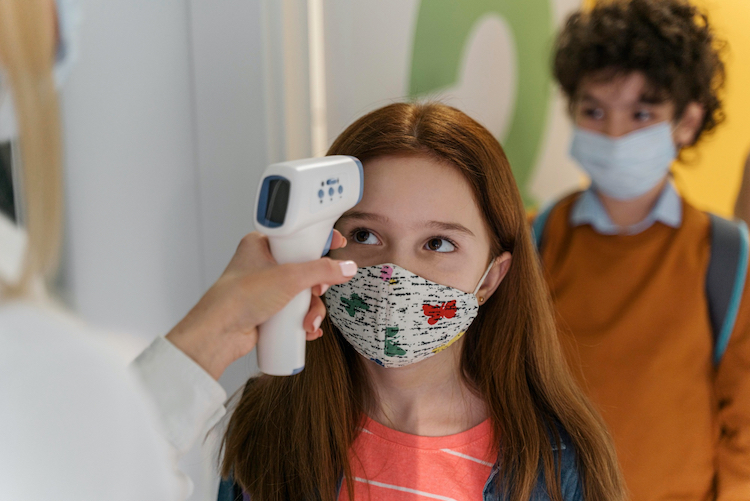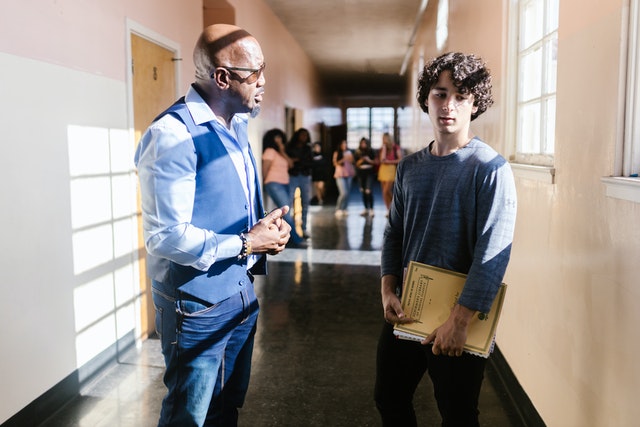5 Ways Schools Are Addressing Pandemic-Induced Mental Health Issues
 With dire statistics about how COVID-19 is already impacting the mental well-being of students and school staff, as well as the lingering duration of the public health crisis, administrators and school psychologists are assessing their approaches and planning for more supports where needed. They’re also finding confidence in their growing capacity to respond to the trauma their communities are experiencing.
With dire statistics about how COVID-19 is already impacting the mental well-being of students and school staff, as well as the lingering duration of the public health crisis, administrators and school psychologists are assessing their approaches and planning for more supports where needed. They’re also finding confidence in their growing capacity to respond to the trauma their communities are experiencing.
“I think the pandemic actually put us all on the same field, as far as we are all struggling with this,” said Peter Faustino, a school psychologist with the Scarsdale Public Schools in New York and a New York state delegate to the National Association of School Psychologists.
The growing acknowledgement of racial injustices and systemic racism also is contributing to students and staff stress, said Dr. Isaiah Pickens, a clinical psychologist and CEO of iOpening Enterprises, which works with school districts across the country on trauma-informed and culturally responsive classroom strategies.
Faustino and Pickens discuss proactive ways schools are addressing students and staff mental health.
Making time to strengthen relationships, find peace
As schools switched to a remote or socially-distanced mode, opportunities for informal exchanges and connections on the school bus or playground disappeared. It’s essential to dedicate time for those interactions between students and peers, as well as between students and teachers, where they can share their life experiences, Pickens said.
Understanding students’ academic or behavioral challenges
Using trauma informed practices and positive behavior intervention and supports can help schools respond to students’ social and emotional needs, as well as academic struggles.
“It’s not about necessarily eradicating the challenges, but it’s about feeling that you have the tools to manage the challenges more effectively,” Pickens said. “And I think that that’s where a lot of schools have felt somewhat stymied at times — to be able to give those tools to students.”
Knowing when a student needs extra supports
Faustino said his school considers the duration, frequency and intensity of concerning behaviors, which helps to identify those who need additional supports. Communication with parents about warning signs from a student is also essential as students spend more time learning from home and not in the school building, he said.
Creating a schoolwide mental health response plan
Developing an action plan to address student mental health during the pandemic has to be more intentional, said Faustino. That’s because organizational, in-person practices may be difficult to replicate online. School staff responsible for assessing student mental well-being may need to meet more often to make sure the needs of students who require more intensive supports are met.
Addressing the mental well-being of school staff
Pickens said many school staff are experiencing secondary trauma, because they are trying to manage their own stresses while also responding to their students’ and families’ challenges and concerns. Caring for staff mental well-being must also be a priority, he said.
Although there are many strategies, such as Zoom meet-ups, socially distanced walks, praise from administrators and other opportunities for staff to receive support, the critical step is for school leadership to keep communicating compassion for this difficult time and normalizing the fact that it’s OK to ask for help, Faustino said.
Excerpted from “5 Ways Schools Are Addressing Pandemic-Induced Mental Health Issues” in K-12 DIVE. Read the full article online.
Source: K-12 DIVE | Ways Schools Are Addressing Pandemic-Induced Mental Health Issues, https://www.k12dive.com/news/5-ways-schools-are-addressing-pandemic-induced-mental-health-issues/593698 | © 2021 Industry Dive
CHC offers free community education sessions for educators. Join us to learn practical teaching strategies you can use in your classroom to help more kids reach their promise and potential. Educator sessions are led by experienced educator/clinician teams from Sand Hill School and CHC.





